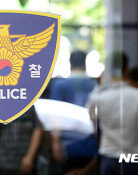Korea slips below top 10 in mobile games due to excessive regulations
Korea slips below top 10 in mobile games due to excessive regulations
Posted December. 27, 2016 07:20,
Updated December. 27, 2016 07:28
No Korean game developer makes the top 10 players of mobile games, which have surpassed the PC game market in sales volume for the first time this year, according to the "Game Market Report 2016" by Superdata Research, a U.S. market survey firm. In comparison, Monster Strike by Mixi of Japan has ranked first in the world by posting sales of 1.3 billion U.S. dollars, which was followed by Finnish game company’s games that ranked second and third. Pokemon Go, which was launched in July through partnership between Ingress of the U.S. and Nintendo of Japan, generated virtual reality fever worldwide and posted 788 million dollars in sales revenue in less than six months.
Korea was a "computer game powerhouse" until the early 2000s, but has seen the industry contract significantly in the wake of a flurry of regulations the government introduced without considering cultural contents and industrial value of the game industry since the "Ocean Story gambling scandal" in 2006. The compulsory shutdown system (2011), which bans teenagers under 16 from playing games in late night hours, and the selective shutdown system (2012), which restricts gaming hours of teenagers under 18 when requested by a parent, are the best example of such regulations. As users scrambled to go after foreign online games, which are not restricted by the regulation, the policy has had little effect but only caused the local game industry to lose competitive edge.
Some regulations designed to curb gambling-like games and prevent teenagers from becoming game addicts are inevitable to some extent. However, avoiding pragmatic gains and instead implementing strong regulations including the "gaming hour restriction system," which is a rarity in foreign countries, has left serious side-effects. The Korean game industry backpedaled for the first time in 2013 by posting minus 0.3-percent growth per annum, before only expanding 2.6 percent in 2014. The number of Korean game developers has more than halved from 30,000 in 2009 to 14,000 in 2014. In contrast, China, which considered games "electronic heroin" in 2005, recognized the limitations of efficacy of regulations, and changed its policy to self-regulations in 2010.
The Korean Culture, Sports and Tourism Ministry hurriedly announced, amid Pokemon fever in July this year, that it will partially revise the Teenager Protection Act to ease the "compulsory shutdown system," and instead introduce a "parent’s choice system." However, it remains uncertain whether the new measure will pass the National Assembly, which is wary of objection by some civic groups that are opposed to deregulation. Excessive regulations on the game industry should be eased to enable the Korean game industry to regain international competitiveness, expedite economic growth, and create jobs.
shkwon@donga.com







